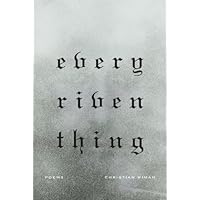I once read a book that I enjoyed so much I immediately read it again. On second reading I was no longer seeing trees walking, but realised I was learning to see into some of the depths of human experience, the glory and the anguish, the cosmic and the tragic. Except it wasn't so much seeing, as listening, and allowing remembered sound to ignite my imagination as I read words of explanation, suggestive and serious and transforming. With mind aflame, the ideas and visions took hold in the mind as I listened to this piece of music yet once again, but doing so having read an exposition of the piece by someone who had heard, and seen, and written, and whose words had opened windows, which opened vistas, and so I began to begin to understand.
All of that reads as pretentious and contrived waffle, perhaps. It will sound even more so when I say that I don't remember the title of the book, nor the author, nor do I still have it. I don't know where it went, and it is one of the few lasting regrets I have in my life with books that I have been unable to recall the details that would let me revisit it. And 35 years later I do an Amazon search with no success.
It was about Beethoven's nine symphonies. I had begun to listen seriously to Beethoven in my 20's, and I can even remember reading the book in my study, in Partick in Glasgow, on a sunny day, probably around 1978. The chapter that jolted me awake expounded the Fifth Symphony. That piece of music can cause problems with the other folk in our house because it has to be played with the volume appropriate to a work expressing in symphonic form controlled rage, looming tragedy, dignified lament, blazing triumph and fate defied rather than deified.
The book was like an essay on psychological archaeology, a careful sifting through layers of social, cultural and personal experience, to discover clues to the complex potency and spiritual impetus which was released by Beethoven into the composition process that gave birth to his Fifth Symphony. That I lost the book, I regret, and still as I write this, I feel its absence, and puzzle at my carelessnes. But. All is not lost.
Every time I play the Firth Symphony I listen for some of the clues which gave birth to ideas, emotions and inner visions those years ago. So I have just ordered a new book, The First Four Notes. Beethoven's Fifthy Symphony and the Human Imagination. No it won't be the same book, but maybe it will further enrich what for me is epiphanic music, eye-opening, life enhancing and mind expanding. It's a celebration of one of the most famous musical openings in Western Music, and a recpetion history of the influence of the Fifth across Europe and beyond. I'm not qualified as a musician, I don't play an instrument, but if these significant deficits can be overcome I'll write a review of this book when I've read it.



